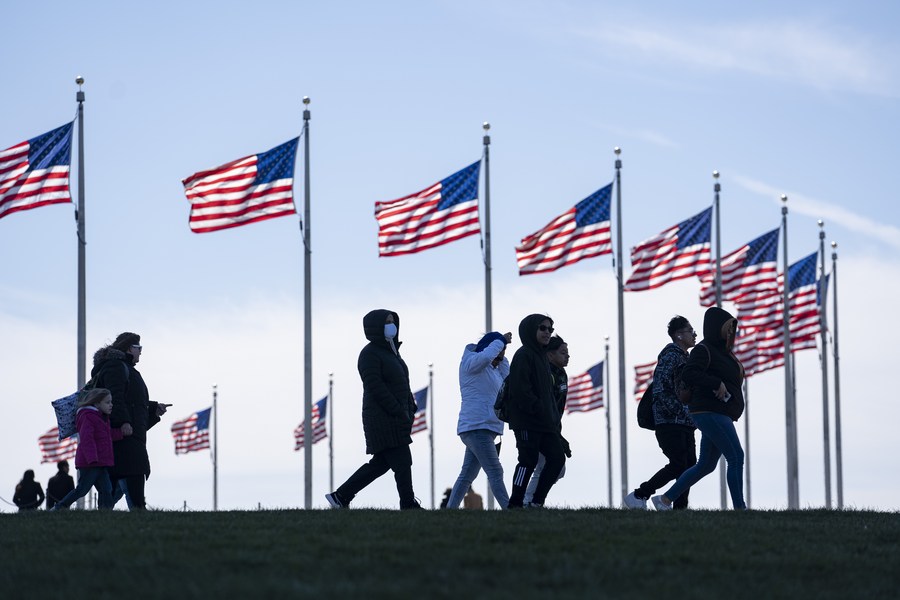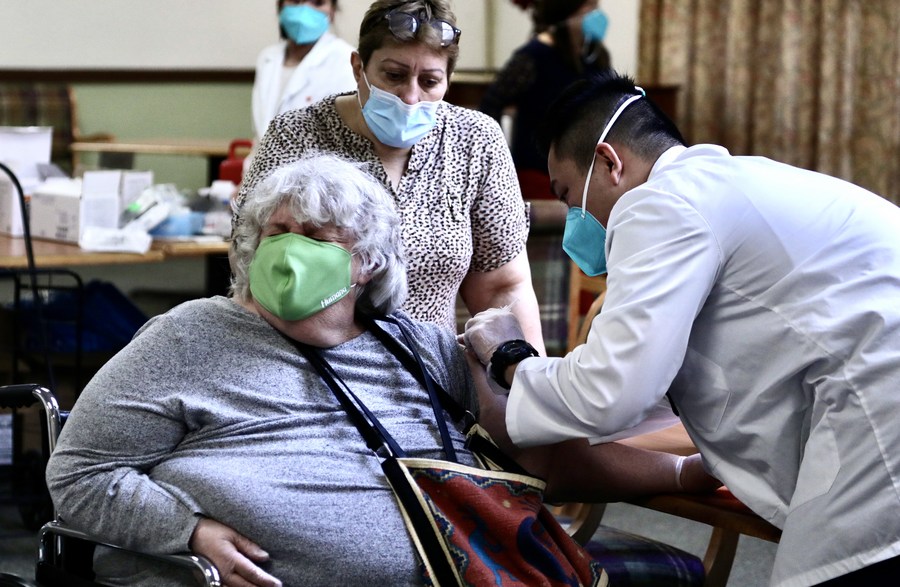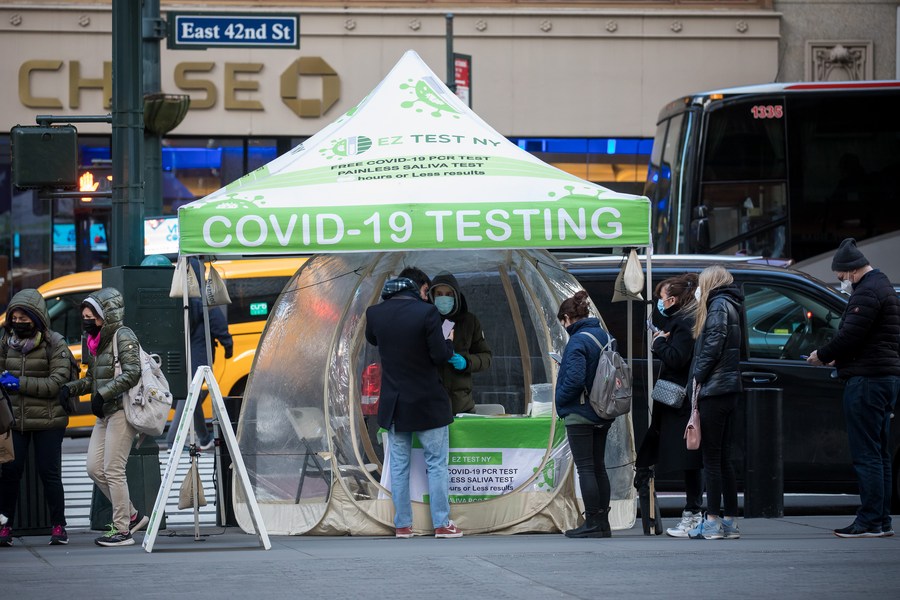U.S. faces funding shortages amid efforts to contain COVID-19 spread

People visit the National Mall in Washington, D.C., the United States, on March 29, 2022. The total number of COVID-19 cases in the United States topped 80 million this day, according to data from Johns Hopkins University. (Xinhua/Liu Jie)
The federal government is running out of funds to provide Americans with COVID-19 vaccines, tests and treatments.
NEW YORK, March 31 (Xinhua) -- Funding shortages have posed challenges to the Joe Biden administration in its over-one-year-old battle against COVID-19, while various efforts are being patched up to stem the virus's spread amid a common belief the pandemic might be riding on its ending phase with falling cases and deaths.
The U.S. federal government is running out of funds to provide Americans, especially those who are uninsured, with COVID-19 vaccines, tests and treatments, as the country's progress achieved over the last two years in the fight against COVID-19 is now threatened by Congress's failure to fund the continuing coronavirus response effort, reported The New York Times on Thursday.
Meanwhile, the World Health Organization (WHO) unveiled a new strategic plan on Wednesday that lays out a path toward ending the global emergency of COVID-19. In its third strategic preparedness and response plan on COVID-19, the WHO acknowledged the pandemic remains an acute global crisis but charted a path to end the global emergency if key measures are implemented rapidly.

File photo taken on Jan. 15, 2021 shows a resident receiving a dose of COVID-19 vaccine in Pasadena, Los Angeles County, California, the United States. (Xinhua)
SECOND BOOSTER
The U.S. Food and Drug Administration (FDA) has authorized a second COVID-19 booster shot for people aged 50 and older, but several public health experts said younger, healthier members of that group don't necessarily need a fourth shot as soon as they become eligible.
"This is one of those where I don't think anyone needs to race," Richard Besser, former acting director of the U.S. Centers for Disease Control and Prevention (CDC), told NBC's "TODAY" show on Wednesday. "This is one of those things where people should think thoughtfully."
The FDA's authorization, announced on Tuesday and promptly followed by new CDC guidance, allows anyone 50 and older to seek a fourth dose of the Pfizer-BioNTech or the Moderna vaccine at least four months after their initial booster. Immunocompromised people, for whom a three-shot regimen is considered the primary vaccination series, can seek a second booster as well.

People wait in line at a COVID-19 testing site in New York, the United States, March 28, 2022. (Photo by Michael Nagle/Xinhua)
TREATMENT ONLINE
As the coronavirus pandemic moves into what the White House hopes is a "new normal," the Biden administration has introduced covid.gov, a federal website meant to help Americans who are infected with the virus find the treatment they need quickly and at no cost.
"This website is part of our effort - our continued and ongoing effort - to make sure that people have what they need to deal with COVID as we move into potentially the next phase of this disease," the White House said on Wednesday.
This new phase, aimed at helping the United States transition to "living with the virus," has four main goals: protecting against and treating COVID-19, preparing for new variants, avoiding shutdowns and fighting the virus abroad, according to the White House announcement.

File photo taken on March 9, 2020 shows police standing guard near the Grand Princess cruise ship docking at the Port of Oakland, the United States. The Grand Princess cruise ship that carried thousands of people, including 21 coronavirus patients, docked at the Port of Oakland after being held off at sea for days. (Photo by Li Jianguo/Xinhua)
FREE CRUISES
The CDC dropped cruise voyages from its list of coronavirus travel health notices on Wednesday, the latest barrier to fall for an industry seeking a semblance of pre-pandemic norms. Cruise lines still require passengers to be vaccinated and test negative before boarding.
The CDC issues its notices "to alert travelers and other audiences to health threats around the world," ranking destinations between Levels 1 and 4 based on the number and trajectory of new cases. It had included notices for cruise ships since March 2020, when cruise lines stopped sailing from U.S. waters for more than a year.
"CDC's decision to remove the travel health notice for cruise travel was based on the current state of the pandemic and overall decreases in COVID-19 cases onboard cruise ships over the past several weeks," The Washington Post quoted CDC spokesman David Daigle as saying in an email.
Photos
Related Stories
- COVID-hit Shanghai to screen 16 mln people in second phase of closed-off management
- China's factory activities slow down amid domestic COVID-19 resurgences, external uncertainties
- Feature: Afghans protest U.S. freezing assets through photo exhibition on plight of people
- U.S. arms companies make big fortune amid Russia-Ukraine conflict
- Chinese mainland reports 1,803 new local COVID-19 cases
Copyright © 2022 People's Daily Online. All Rights Reserved.










